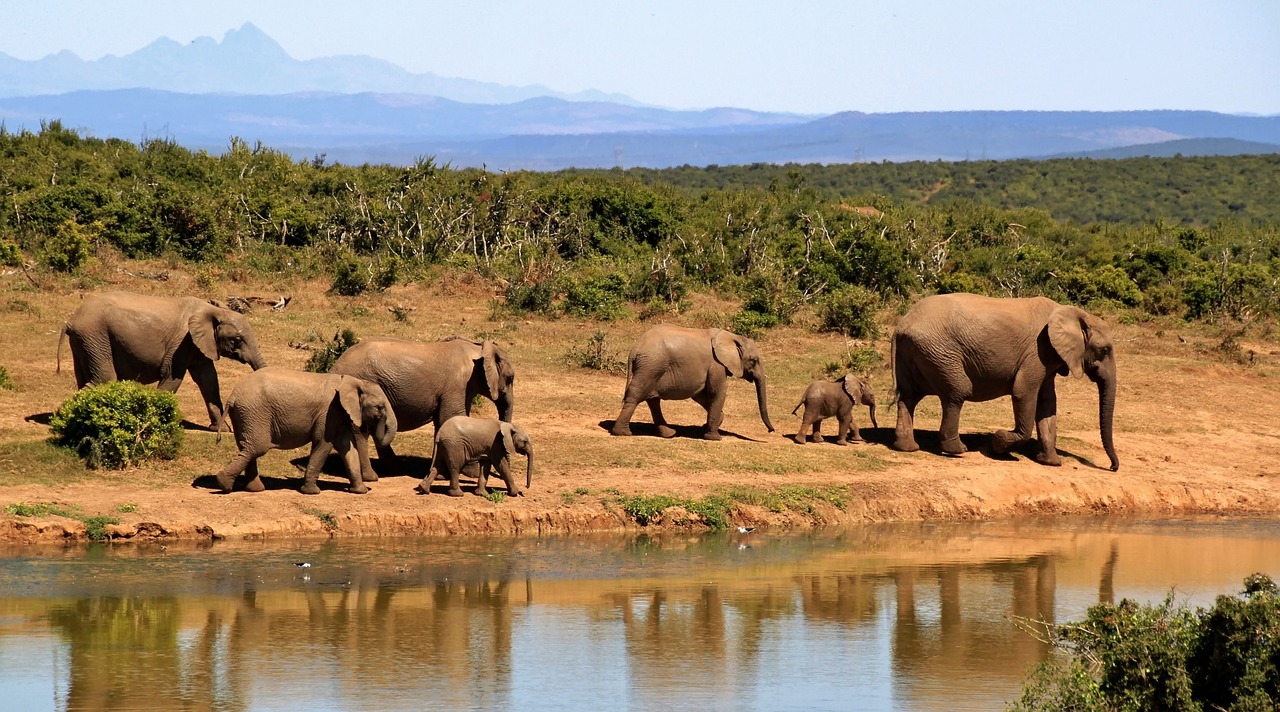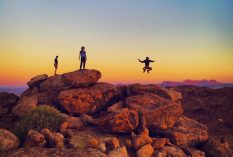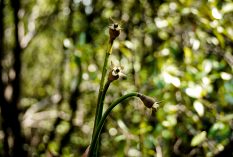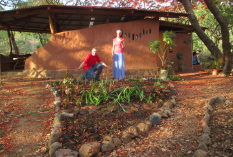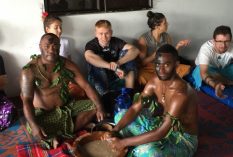The highlight of any safari is observing iconic wildlife in their natural habitats – prowling for their next hunt, gathering around watering holes, or lounging under the vast African skies. But before you get too excited, plan your trip well to guarantee a successful safari. Research well in advance and gather tips from the experts.
To ensure you make the most of your trip, here are some travel tips for wildlife safaris in Africa.
Think About Budget
A wildlife safari in Africa is generally expensive, often requiring significant budget planning. While it can be challenging to pinpoint the exact cost of your safari experience, having a rough estimate helps you prepare better and manage expectations. The price range for a 10 to 14-day safari, excluding international flights, typically falls between UK£5,000/US$6,500 and UK£15,000/US$19,500 per person. This broad range reflects the numerous factors that influence the overall cost, such as the level of luxury you desire, the specific destinations within Africa, the travel season, and the types of activities you want to include in your itinerary.
If you opt for luxury lodges with private guides and exclusive wildlife experiences, it will push the cost towards the higher end of the spectrum. In contrast, more modest accommodations and group tours can make the safari more affordable.
Additionally, peak travel seasons, like the Great Migration in Tanzania and Kenya or the dry season in Southern Africa, generally command higher prices due to increased demand. On the other hand, travelling during the shoulder or off-seasons can offer cost savings, though it’s essential to consider the potential trade-offs in wildlife visibility and weather conditions.
Picking the Destination for the Wildlife You Want to See
Choosing the right destination is crucial when planning a wildlife safari in Africa, as each region offers unique experiences and opportunities to see specific animals. Tailoring your destination to the wildlife you want to encounter ensures a fulfilling and enjoyable safari.
For instance, if seeing gorillas is at the top of your list, visiting gorilla safaris in Rwanda is a must. The lush forests of Volcanoes National Park provide a rare opportunity to observe mountain gorillas in their natural habitat, offering an unforgettable and intimate wildlife experience.
South Africa, particularly in renowned reserves like Kruger National Park, is perfect for those eager to see lions. You can often see these iconic predators on game drives, where skilled guides take you close to lion pride and their hunting grounds.
Meanwhile, Kenya is famous for its large elephant populations, especially in Amboseli National Park, where herds roam against the stunning backdrop of Mount Kilimanjaro. Additionally, the Maasai Mara offers spectacular views of the Great Migration, a dramatic event involving millions of wildebeest and zebras.
Each African country offers distinct wildlife experiences and landscapes. Selecting the right destination based on the wildlife you wish to see can guarantee a fun safari adventure that aligns with your expectations and interests.
Consider Vaccinations and Medication
Some of the most important things to consider when planning an African wildlife safari are vaccinations and medications. Different African regions present unique health risks. Proper vaccinations or medications can help mitigate these risks, allowing you to enjoy your adventure without unnecessary interruptions.
Some vaccinations to consider are those for yellow fever, hepatitis A and B, typhoid, and rabies, depending on your destination. Yellow fever vaccination is essential for travel to countries where the disease is endemic, and authorities may require you to present this before entry.
Malaria is a significant concern in various parts of Africa. It is vital to consult with a healthcare provider about appropriate antimalarial medications for your specific travel areas. Alongside medication, taking preventive measures such as using insect repellent, wearing long sleeves and pants, and sleeping under mosquito nets is highly recommended.
Additionally, ensure that your routine vaccinations, such as measles, mumps, rubella (MMR), tetanus, and diphtheria, are up to date. Consult a travel medicine specialist several weeks before your trip for personalised advice based on your itinerary, health status, and the latest health advisories.
Pick Clothes for Environment
Aim for comfort and practicality when packing clothes for your African wildlife safari. Note that the continent has diverse climates and terrains. During your safari, you’ll likely encounter varying temperatures and conditions, from the hot desert camps of Namibia to the cooler, high-altitude regions if you’re climbing Mount Kilimanjaro. Make sure you have the right clothes for these varying conditions.
Lightweight, breathable clothing is crucial for daytime game drives in the scorching heat, as it helps keep you cool and protects against the sun. Neutral-coloured clothes are perfect for safaris, allowing you to blend in with the natural surroundings and avoid attracting insects.
Layering is essential, especially if you plan to take wildlife safaris in different areas with different environments. Early mornings and evenings in the desert can be chilly, so having a warm fleece or jacket is necessary. On the other hand, climbing Kilimanjaro requires specialised gear to tackle its diverse climate zones, ranging from tropical heat at the base to freezing temperatures at the summit. Pack moisture-wicking base layers, insulating mid-layers, and a waterproof outer layer to stay dry and warm throughout the ascent.
Choosing the Right Accommodation
Book the proper accommodation when planning a wildlife safari in Africa, as it will affect the overall experience and comfort. The type of lodging can enhance your connection with nature and the wildlife you seek to observe. Options range from luxury lodges and tented camps to more rustic bush camps and mobile safaris, each offering different levels of comfort, amenities, and proximity to wildlife.
If you want to splash out on luxury, stay at luxury lodges and tented camps, which provide high-end amenities such as gourmet dining, spa services, and private guides. These accommodations are usually in prime locations within or near national parks and reserves, offering excellent wildlife viewing opportunities right from your doorstep. They also provide knowledgeable guides and game drives, enriching your understanding of the local ecosystem.
On the other hand, more rustic bush camps and mobile safaris offer a closer, more immersive connection to the natural environment. These accommodations typically have fewer amenities but provide a more authentic safari experience, where the sounds of the African bush surround you at night.

